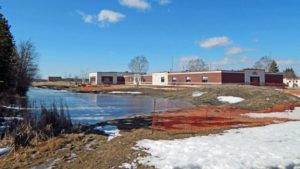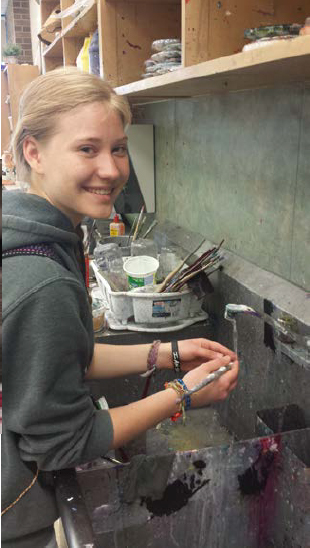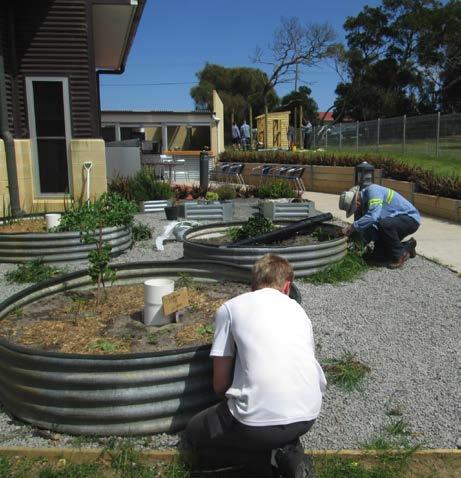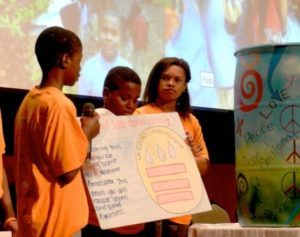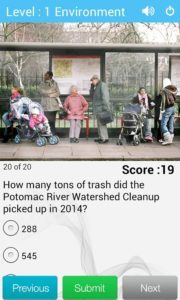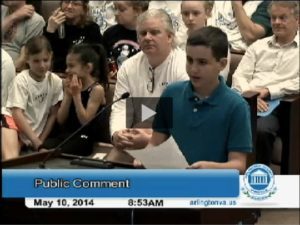2014 Arlington, Virginia, USA
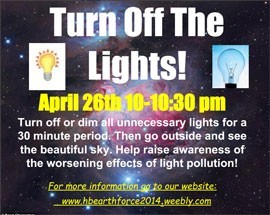
Sixth-grade students learning astronomy at H-B Woodlawn Secondary program learned about the problem of light pollution and its effect on viewing the night sky, but as they researched the issue they also found that light pollution can cause harm to wildlife and plants that are important to watershed health. To help raise awareness of the problem, they wanted to ask Arlington residences and businesses to turn off or dim unnecessary lights and draw the shades for 30 minutes the night of April 26, coinciding with Arlington Earth Day and International Dark Sky Week, as well as with the peak migration of birds over the Mid‐Atlantic region. They hoped that during that time, Arlingtonians would go outside and view the lovely dark and starry night sky.
To get the word out, the students produced flyers to promote the event, and they were able to post announcements on the Arlington Chamber of Commerce, Arlington Initiative to Rethink Energy, and ARLnow websites, as well as through their own blog site. The local National Public Radio affiliate, WAMU, featured the students and the project on their news website, as well. Quoted in the article, student Henry Hammer said, “People don’t know that it can be good to turn off the lights beyond just saving energy. It can save the lives of animals, it can reduce smog, and it helps the environment.”
H‐B Woodlawn’s “Turn Off the Lights” project was a finalist in the 2014 Caring for Our Watersheds competition in Virginia, and the students received $519 in implementation funding from Nutrien, which covered printing costs for the flyers.
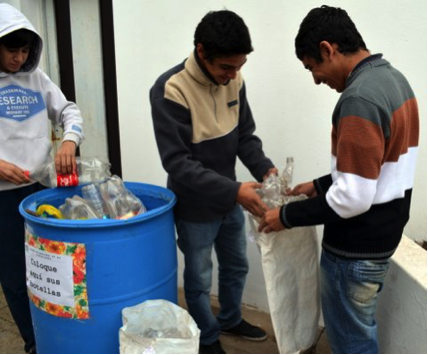 This project addresses the problem of how empty plastic bottles (PET) are currently handled in Carmen de Areco. The first stage of this project is to set up a collection center at the school, where community members can take their empty plastic bottles. The school will provide a place to collect, press and package these disposable bottles before delivering them to a recycling center.
This project addresses the problem of how empty plastic bottles (PET) are currently handled in Carmen de Areco. The first stage of this project is to set up a collection center at the school, where community members can take their empty plastic bottles. The school will provide a place to collect, press and package these disposable bottles before delivering them to a recycling center.